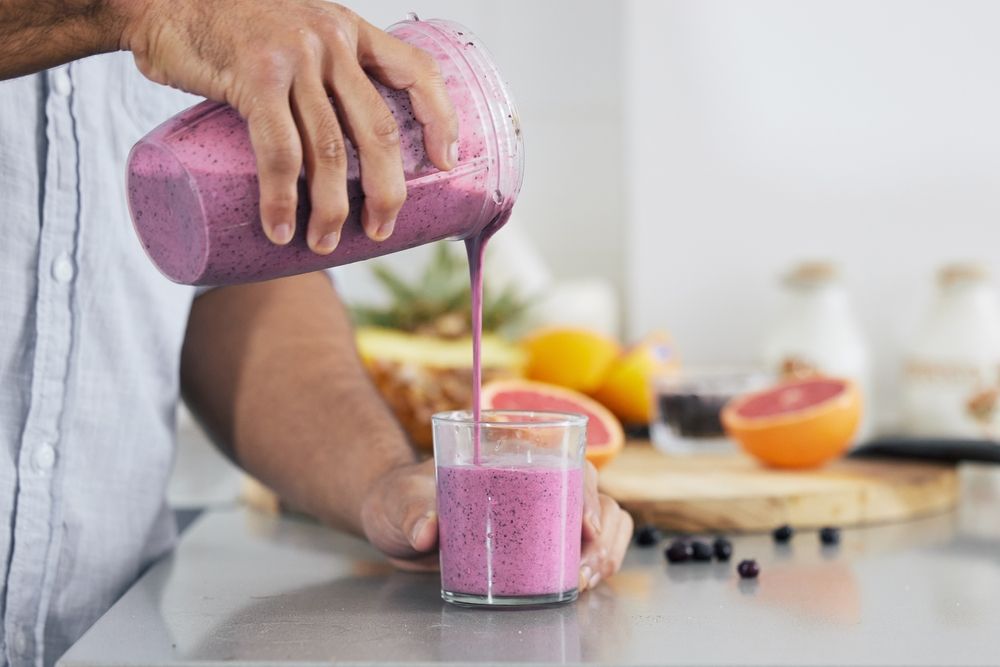Smoothies serve as the perfect beverage for individuals leading busy lives. With just a few quick steps, you can concoct a drink brimming with nutrient-rich ingredients, making it convenient to enjoy on the go. While smoothies often serve as a satisfying breakfast or afternoon pick-me-up, they can sometimes lack satiating nutrients like protein. Hence, it's crucial to prioritize incorporating high-protein ingredients into your next blend.
But why exactly is it essential to boost the protein content of your smoothies? Ensuring an adequate protein intake during meals can curb hunger, enhance feelings of satiety, promote lean muscle mass, and aid in weight loss or management. While protein recommendations vary based on individual factors, Harvard Health suggests consuming a minimum of 0.36 grams of protein per pound of body weight to prevent deficiency—a figure that increases for those leading active lifestyles. If you find it challenging to meet your protein needs through regular meals, incorporating a high-protein smoothie into your routine can help you achieve your goals.
To delve deeper into some of the top protein-rich ingredients for your smoothies, we consulted with dietitian Mary Sabat MS, RDN, LD. "These ingredients offer a plethora of nutritional advantages and elevate the flavor and consistency of your smoothies, ensuring they're both delectable and protein-rich," she notes.
Continue reading to discover more.
1) Greek Yogurt
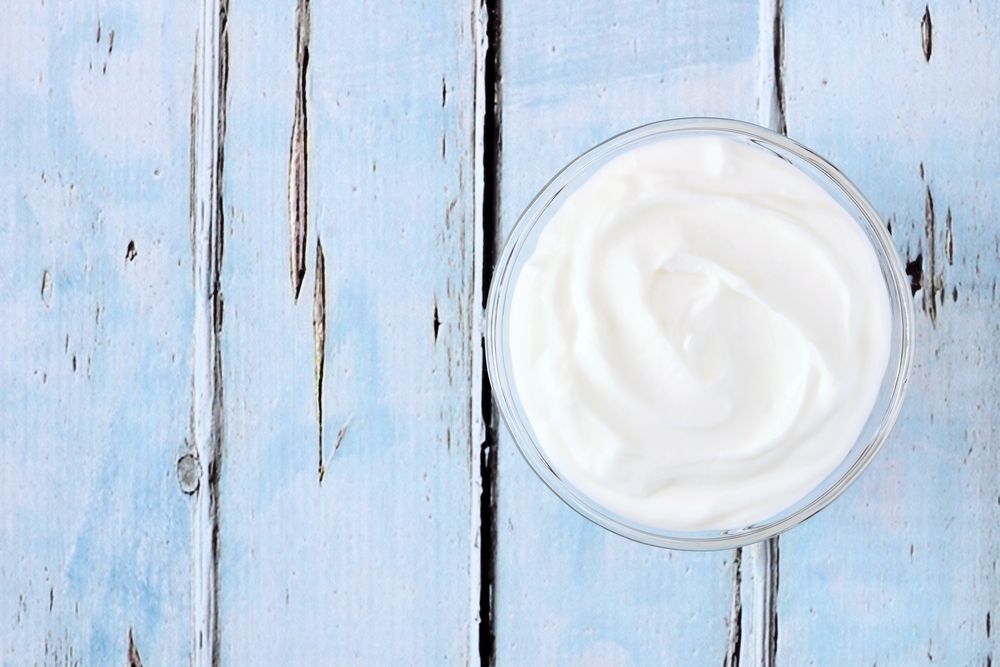
With 11.3 grams of protein per 1/2 cup serving, Greek yogurt emerges as a protein-rich ingredient. "Greek yogurt not only provides creaminess and a tangy flavor to your smoothie but also serves as an excellent protein source to support muscle growth and digestion," remarks Sabat.
In addition to its protein content, Greek yogurt boasts additional benefits such as being rich in calcium, and probiotics, and naturally lower in sugar compared to other regular yogurt varieties. However, it's essential to opt for varieties with minimal added sugar to maximize its health benefits.
2) Protein Powder
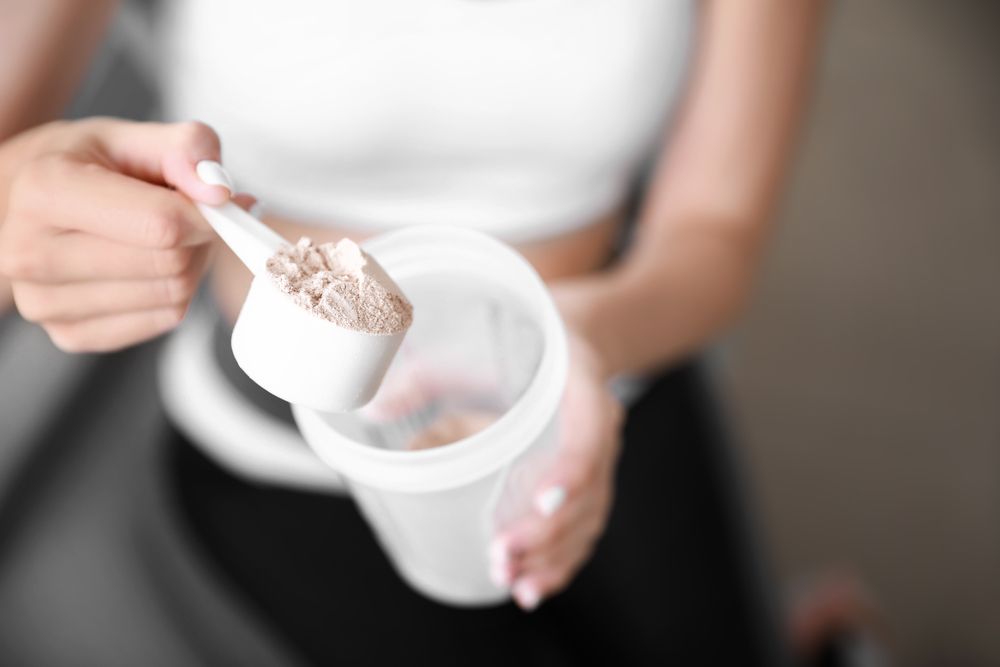
With 20 grams of protein per scoop (whey), protein powder emerges as a potent protein source. "Protein powder serves as a significant protein booster, facilitating muscle recovery and growth, and it's available in a variety of flavors to enhance taste," notes Sabat.
"However, it's crucial to be mindful of the ingredients in these shakes and ensure they do not contain artificial flavors or sweeteners such as Splenda, acesulfame potassium, NutraSweet, or sugar alcohols."
3) Silken Tofu

With 4.4 grams of protein per serving, silken tofu emerges as a plant-based protein source. "Silken tofu not only adds creaminess and thickness to your smoothie but also provides essential amino acids," remarks Sabat.
Tofu stands out from many other plant-based protein sources due to its provision of all essential amino acids, making it a complete protein source. While most plant-based foods like nuts, seeds, and legumes are considered incomplete proteins, lacking all necessary amino acids, complete proteins are typically found in animal sources like meat, dairy, and eggs—although exceptions include certain plant sources like tofu, edamame, and tempeh.
Achieving a balance of both complete and incomplete proteins is crucial for optimal nutrition, making the inclusion of complete proteins like tofu beneficial in achieving this balance.
4) Cottage Cheese
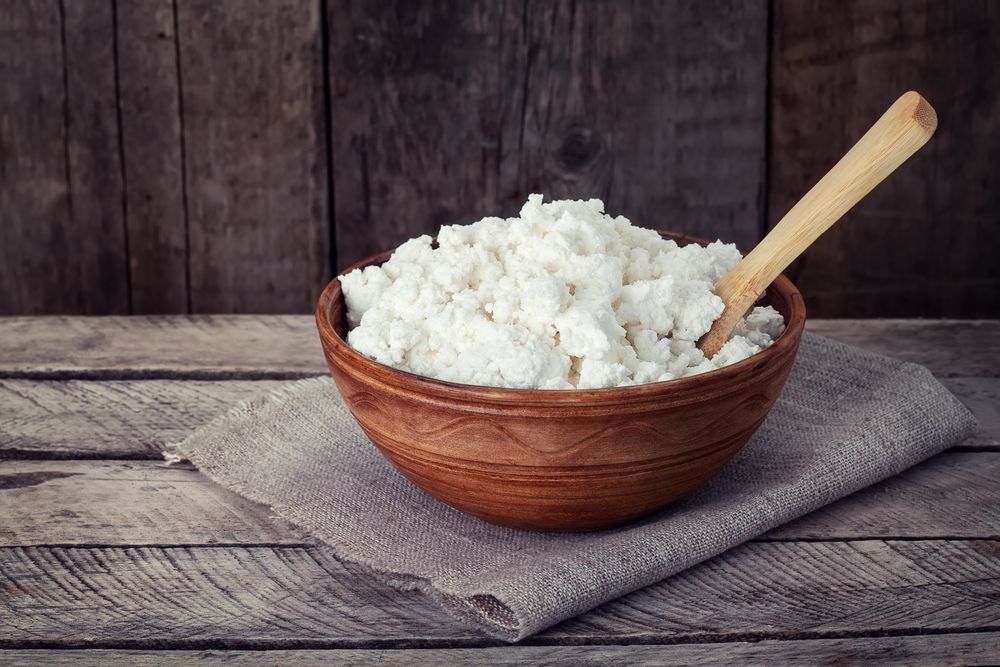
With 12.1 grams of protein per 1/2 cup serving, cottage cheese has gained popularity in recent years due to its health benefits and versatility. It's high in protein and low in fat, especially if you opt for a low-fat option. According to Sabat, it serves as an excellent high-protein smoothie ingredient, providing creaminess and a mild tangy flavor.
In addition to smoothies, cottage cheese can be utilized in various recipes such as salad dressings, pasta sauces, and homemade ice cream, showcasing its adaptability in the kitchen.
5) Almond Butter
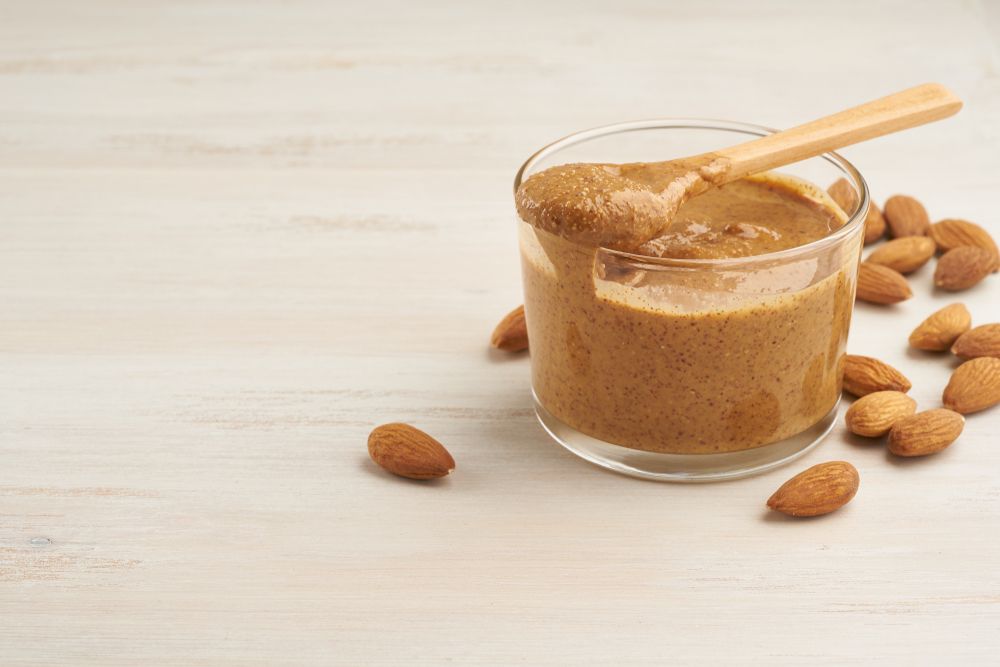
Boasting 6 grams of protein per 2 tablespoons, almond butter serves as a delicious high-protein addition to your morning smoothie. If almond butter isn't available, Sabat suggests using a handful of almonds as an alternative.
"Almonds and almond butter provide protein, healthy fats, and a nutty flavor, enriching the taste and texture of your smoothie," she explains. Furthermore, research indicates that almonds can aid in reducing hunger and enhancing satiety, making them an ideal filling ingredient for your smoothie.
6) Peanut Butter
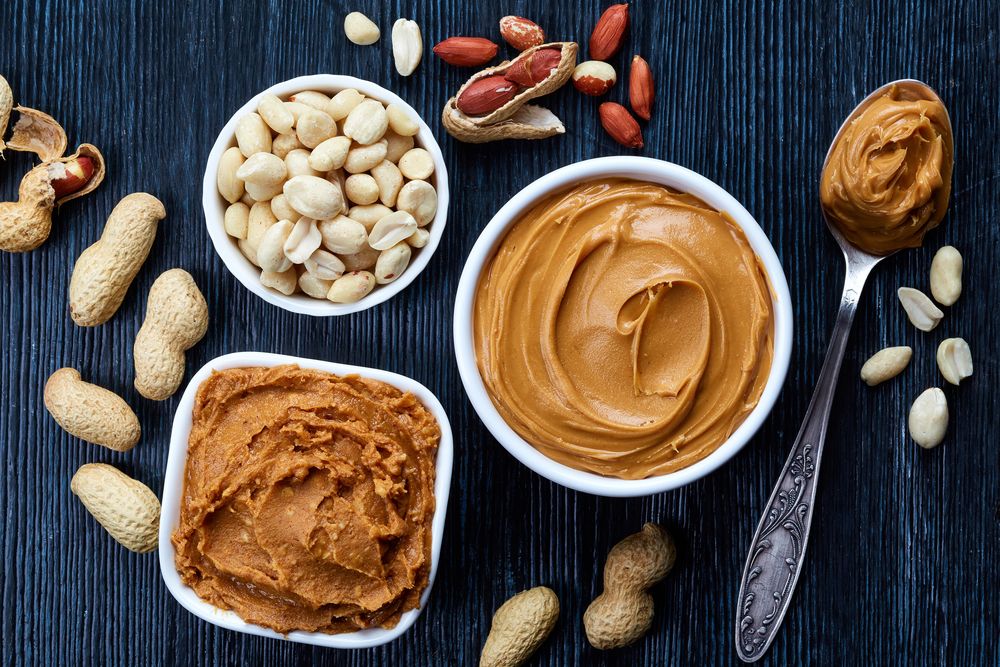
With 7.2 grams of protein per 2 tablespoons, peanut butter provides an excellent protein boost for your smoothie. Whether you're crafting a classic peanut butter and banana blend or experimenting with a PB&J flavor combination by incorporating strawberries and peanut butter, this ingredient contributes flavor, creaminess, and a substantial amount of protein to every blended beverage.
7) Kefir
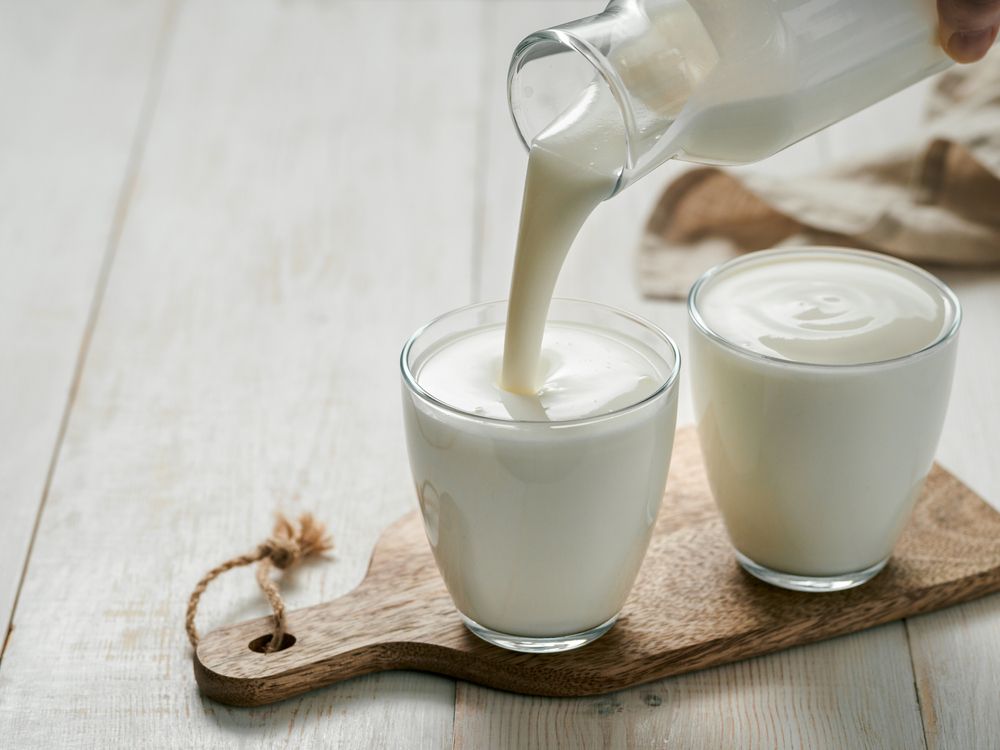
With 5 grams of protein per 1/2 cup, kefir is akin to a drinkable yogurt—a fermented milk beverage that provides beneficial protein and probiotics, alongside a delightful tangy flavor. Incorporating kefir into your smoothie offers a protein boost and promotes gut health, supported by research published in Frontiers in Microbiology.
8) Chia Seeds
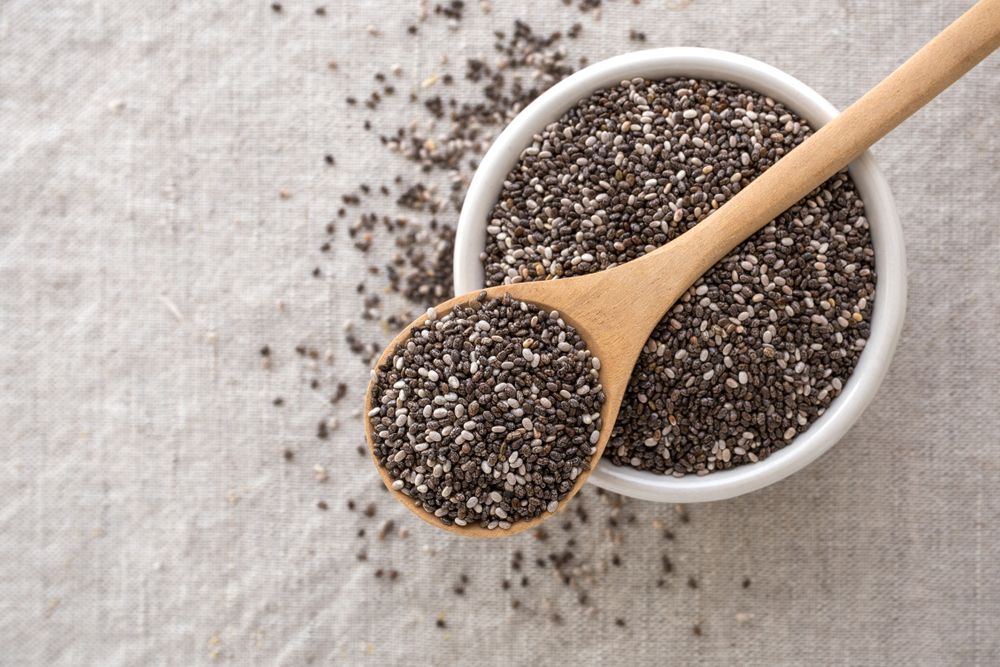
With 4.7 grams of protein per ounce, chia seeds are a favored high-protein ingredient for smoothies according to Sabat. These seeds not only offer plant-based protein but also provide fiber and omega-3 fatty acids, while simultaneously thickening the smoothie and imparting a unique gel-like texture. Research indicates that chia seeds are rich sources of antioxidants and can contribute to improved gut and cardiovascular health. With such benefits, it's certainly a compelling reason to include a handful in your breakfast smoothie!
9) Hemp Seeds or Hemp Hearts
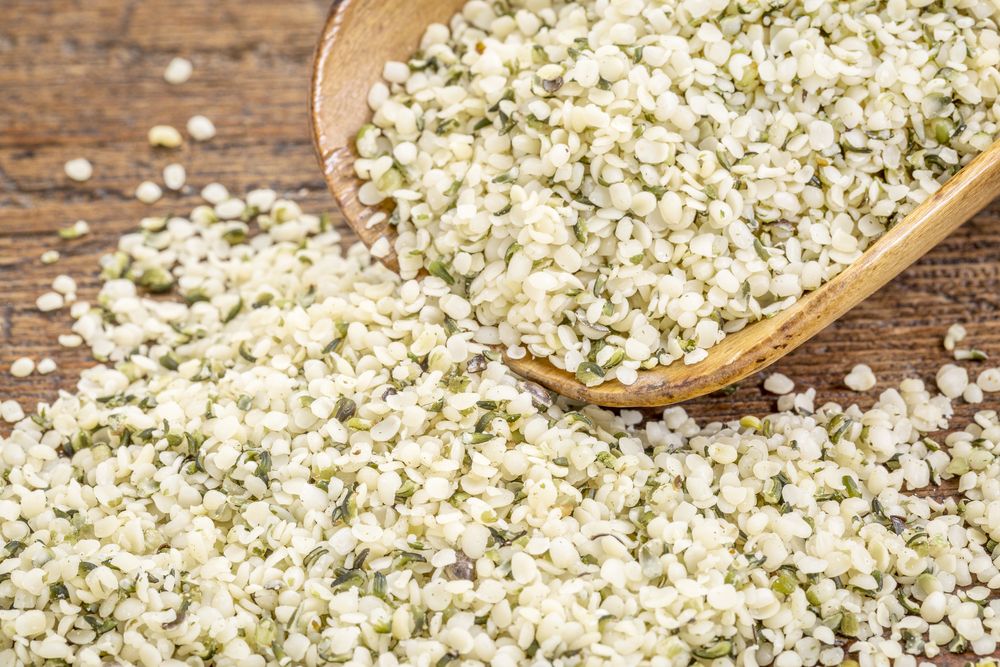
With 10 grams of protein per 3 tablespoons (hemp hearts), hemp emerges as a valuable yet often overlooked protein source. Both hemp seeds and hemp hearts (the soft interior of the seeds) serve as delightful additions to any smoothie in need of a protein boost.
"Hemp seeds provide protein, omega-3 fatty acids, and a subtle nutty flavor," notes Sabat. For those seeking a softer texture than the crunchy seeds, hemp hearts offer similar health benefits in a smoother form.
10) Spinach
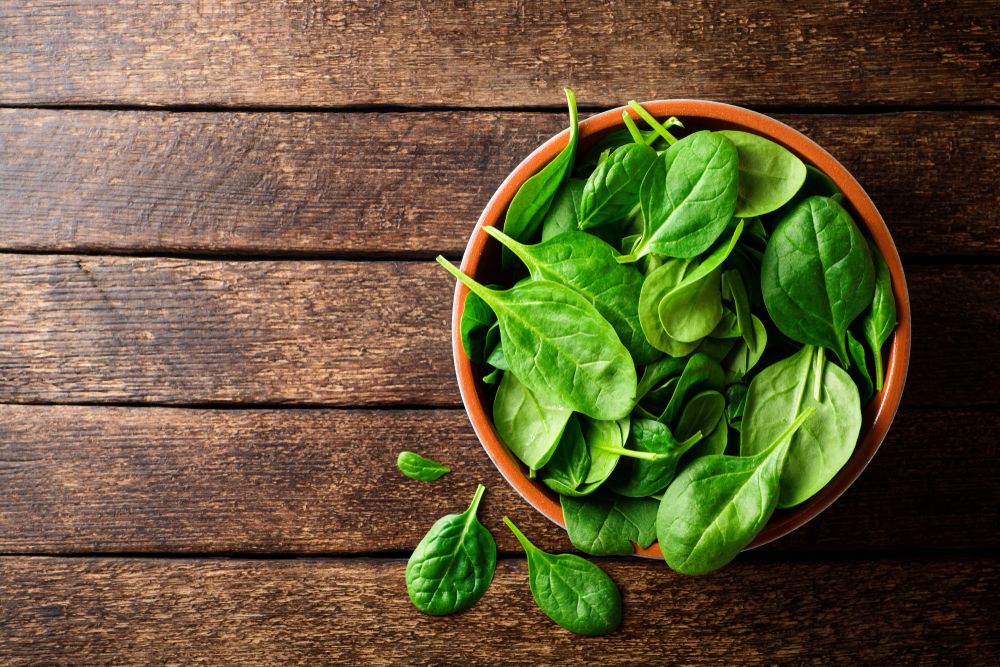
With 2.8 grams of protein per 1/2 cup (frozen), spinach emerges as an excellent smoothie ingredient. "It serves as a low-calorie protein source packed with vitamins and minerals, lending a vibrant green color and a silky smooth texture," remarks Sabat. While raw spinach can be used in smoothies, opting for frozen spinach can enhance the creaminess of the blend even further.
11) Pumpkin Seeds
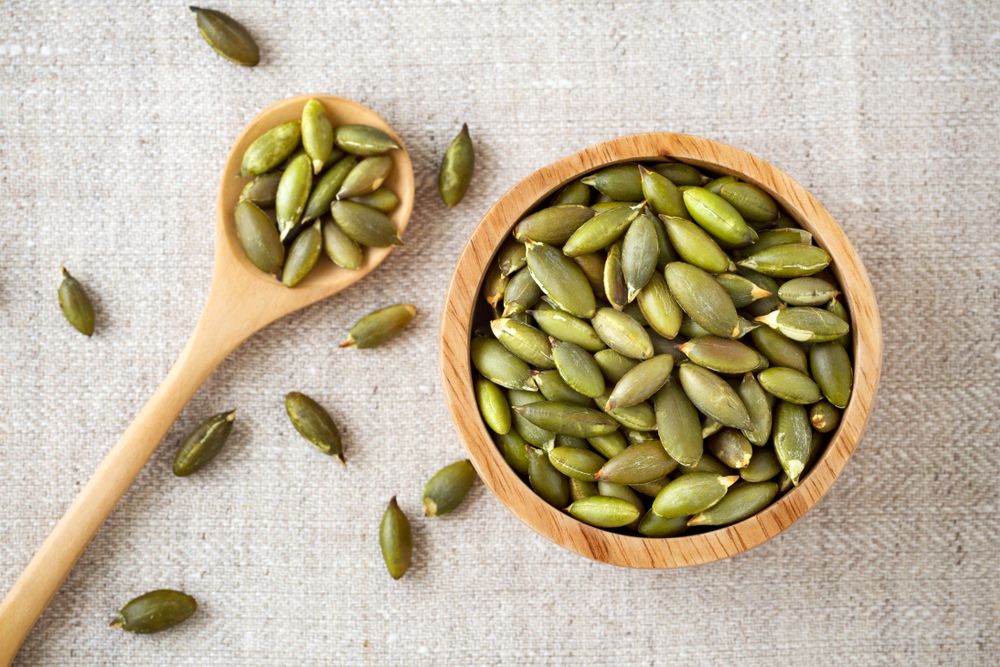
With 10.8 grams of protein per 1/4 cup, pumpkin seeds emerge as a nutritious addition to your smoothie, despite their crunchy texture. Sabat recommends incorporating pumpkin seeds into your next beverage, noting that they are rich in protein and healthy fats, imparting a subtle crunch and nutty flavor to the blend while promoting satiety.
"The satiety effect of pumpkin seeds is attributed to their high protein content, but their fiber and healthy fat content also contribute to their filling nature," explains Sabat.
12) Quinoa
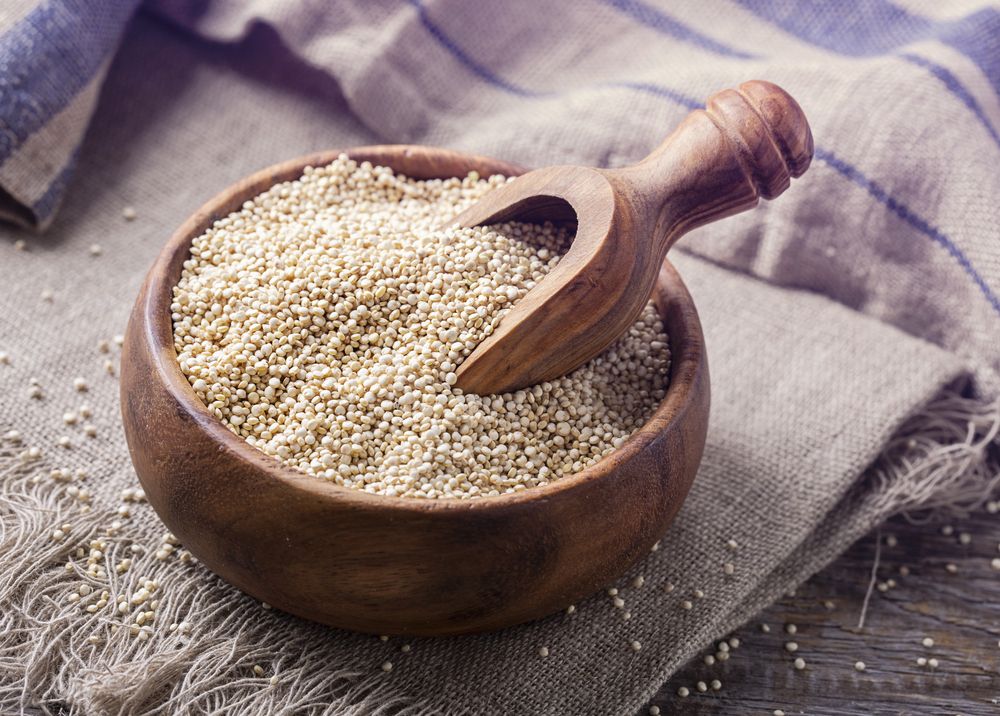
With 4.1 grams of protein per 1/2 cup (cooked), quinoa serves as an unexpected yet beneficial addition to your smoothie.
"Cooked quinoa is a protein-rich grain that can enhance smoothies, providing a subtle, nutty flavor and added nutrition," suggests Sabat. Furthermore, this whole grain is replete with fiber, iron, magnesium, and folate, offering a substantial dose of nutrients in a single beverage.

